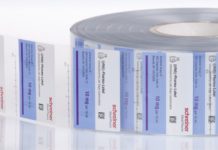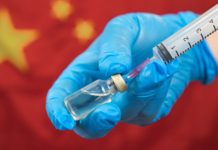School Health Questions for Parents
For many kids in America, the next few weeks involve getting back to school after a long (or maybe not so long) summer break. While students may be dreading the return to the classroom, homework, and early bedtime, parents — on the other hand — are happy to get back to regular daily routine.
Regular routines are good, but mom and dad may have questions surrounding health and medications topics, especially for parents sending their child off to school for the first time. How do parents utilize the school nurse? What about severe peanut allergies? Should we start giving our kids a daily vitamin to boost their health? Read more as Drugs.com tackles these back to school questions, and more.
1. Are common OTC head lice products effective?
Reliable over-the-counter (OTC) treatments are available without a prescription for head lice treatment, but their effectiveness is diminishing. According to studies, head lice are developing resistance to the common OTC treatments, like permethrin, so prescription products may be needed for resistant episodes.
If lice are still present the day after treatment with OTC head lice products, consult with your doctor for additional advice. Prescription products such as:
- Ulesfia
- Sklice
- Natroba
are available, and may be more effective for resistant head lice. Do not use lice treatments more than recommended by your doctor or on the package label. Always get a doctor’s advice for use in children under the age of two.
Head lice are found worldwide. Head lice are not known to spread disease, although extreme itching can lead to a secondary bacterial infection. A major myth is that head lice affect only those with poor hygiene and low-income. In fact, head lice play no favorites, and anyone can get infected, although preschool and elementary children are most at risk.
2. How can parents interact and consult with their school nurse?
Parents should set up an individual meeting with a school nurse at the beginning of the school year if they have concerns about their child’s health at school.
Your school nurse is an important part of the team at your child’s school. The school nurse provides expertise and education to students, staff and families in the area of healthcare and mental health, can perform limited health screenings and vaccine reviews for students, and provide temporary care or a referral for your child in case of illness or injury on school property. The school nurse is your advocate for a healthy child and a healthy school environment. A student with an acute or chronic illness with an unmet medical need will have a hard time learning.
The school nurse is integral in developing an action plan for your child if he or she has asthma, or severe allergies like food or bee stings. Meet with your school nurse and doctor to determine school-specific policies for self-administration of medications by your child (for example, asthma inhalers or EpiPen use). All schools must abide by laws regarding use of medications at school.
3. My child has asthma and severe allergies. Can he have access to his inhaler and epinephrine at school?
According to the American College of Asthma, Allergy and Immunology, all 50 states have laws protecting students’ rights to carry and use asthma and anaphylaxis (severe allergy) medications at school. Children who are at risk of an asthma attack at school should carry a fast-acting bronchodilator such as albuterol (Proventil, Ventolin, ProAir). Those at risk of anaphylaxis should carry an epinephrine auto-injector (EpiPen).
Asthma is the one of the most common chronic childhood diseases, affecting roughly 4 out of every 100 children. Every day in the U.S., about 10,000 kids miss school due to asthma, and it is one of the most costly ailments in our nation. Children of all ages with asthma should have an asthma action plan, as developed in conjunction with their doctor. Be sure your child’s teacher, school nurse, sports coaches and baby-sitters understand and have a copy of the asthma action plan, too. If your child plays sports, address if there is a need for exercise-induced asthma medications with your doctor. Asthma is a highly treatable condition with good outcomes, but can be deadly if not properly treated.
Food, bee stings, latex, medication and other allergies should be addressed, as well. Those with a life-threatening allergic reaction (anaphylaxis) should carry an epinephrine autoinjector (EpiPen) to use in emergencies. Anaphylaxis can occur within seconds to minutes after exposure to an allergen.
Train teachers, babysitters, and anyone else who will be in charge of the young child on the proper techniques for administration of emergency medications. Be sure to train older children on proper use if they will be administering the medication to themselves, too.
4. Do children need to take a daily vitamin?
Clinical studies from 2014 are calling into question the value of a daily multivitamin in adults, and health experts recommend that multivitamins are not needed in young children and teens who are growing normally. Food provides the best source of nutrients, and regular meals and nutritious snacks should provide adequate vitamins.
However, in children and young adults that are not getting adequate nutrition — for instance if they have erratic eating schedules, are vegetarian, or avoid dairy products — a vitamin supplement may be needed. Check with your pediatrician if you feel your child is not thriving and growing properly with their current diet. Chewable tablets are available for children who have difficulty swallowing pills. Vitamins can also have drug interactions, so be sure that a drug interaction screen is run if your child takes other medications.
Vitamins can be toxic if taken in excessive doses. This is especially true of the “fat-soluble” vitamins A, D, E, and K. “Megavitamin” therapy, to help lessen the effects of a range of conditions — from ADHD to dyslexia — is dangerous and has no proven benefit. Even vitamin C, normally a very safe water-soluble vitamin, cause headaches, diarrhea, nausea, and cramps when consumed in mega doses to offset the symptoms of a cold.
Vitamins can also be toxic, even deadly, to a toddler or infant who accidentally consumes them from a bottle left on a counter or nightstand. Iron is especially toxic. Prenatal iron supplements, which often look like shiny red or green candy discs, are often to blame. Keep all vitamins safely out of the reach of children.
5. How are food allergies handled at school?
Allergic reactions to food are the most common cause of anaphylaxis in community settings, according to the U.S. Centers for Disease Control and Prevention (CDC). Most schools have special protocols on how to handle food allergies and anaphylaxis. If your child has a severe food allergy, such as to peanuts, you should discuss this with your school nurse, teachers and administrators, and determine the school’s protocol for handling food allergy emergencies. Once you understand the school’s policy, review it with your doctor to be certain it will meet the needs of your child.
Avoiding foods that cause severe allergy is the most important step in preventing an anaphylactic reaction. Your child should understand which foods to avoid, and know how to recognize the symptoms of anaphylaxis, which may include:
- hives or redness of the skin
- tightness in the throat
- nausea
- dizziness
- breathing problems
- a decrease in blood pressure and/or fainting
For a life-threatening anaphylactic reaction, it is important that the child can have access to an epinephrine auto-injector, such as an EpiPen. Some schools now have state-mandated rules to stock epiniephrine, which can be used in children who have a first-time allergic reaction. Training school employees on epinephrine use is important. Epinephrine auto-injector training devices are available for free, and everyone who may need to use it, whether on themselves or someone else, should be trained.
Students who know they have an allergy can bring their own epinephrine autoinjectors to school and keep the medication with them. Your doctor will write a prescription for an epinephrine autoinjector and you can have it filled at your pharmacy. As many one quarter of people who have an anaphylactic reaction will have continuing symptoms after the first dose, so keep two doses of epinephrine with you at all times. Get to the hospital as quickly as possible after using your first dose. You will need to alert your school and school nurse about your allergies and need for epinephrine prior to the first day of school.



























